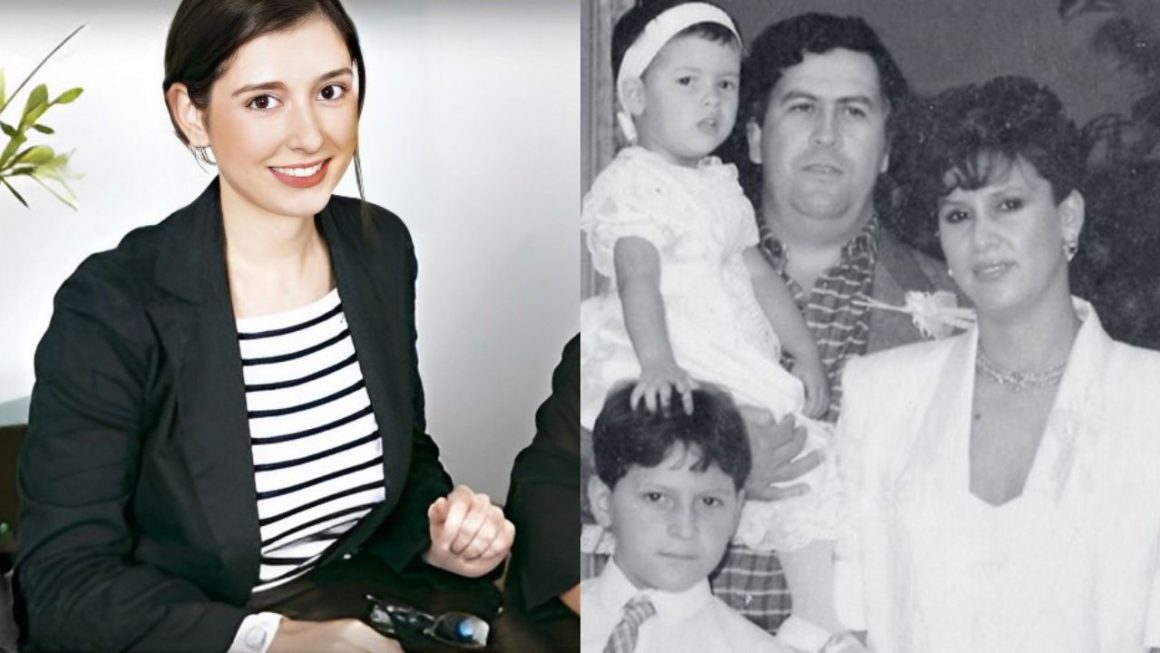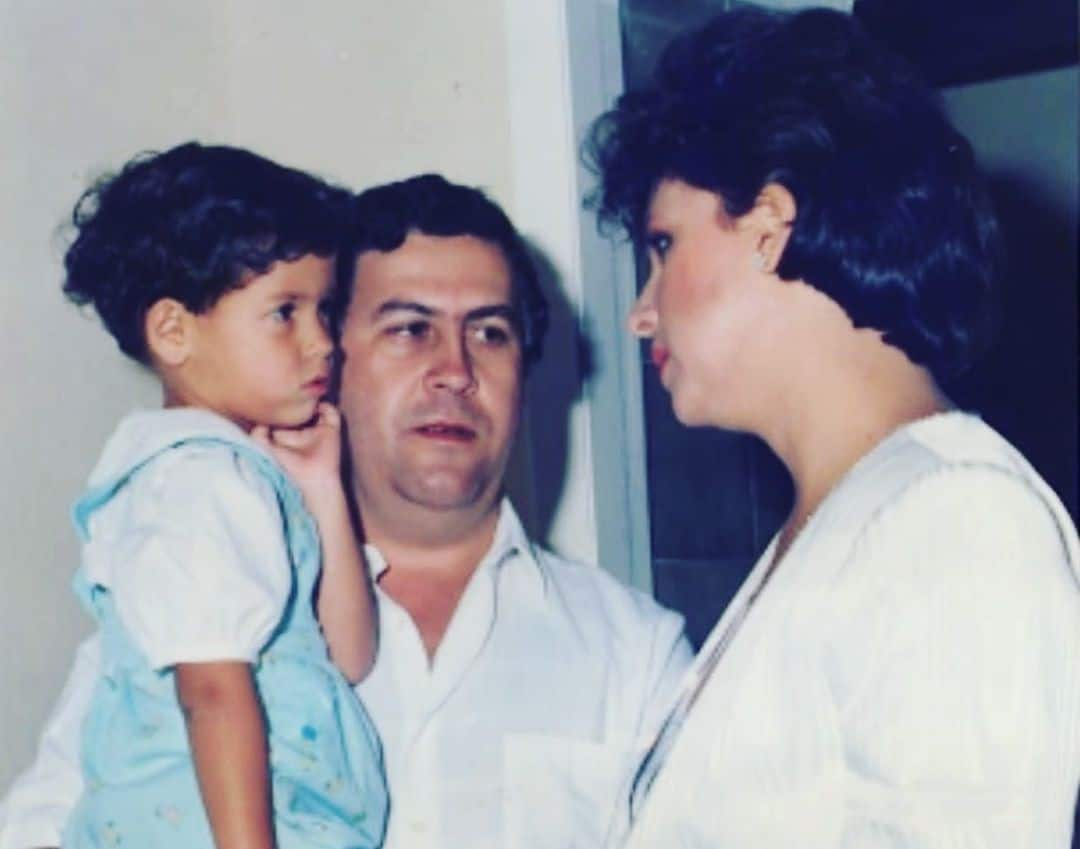Who Is Pablo Escobar's Daughter? Unveiling Manuela's Story
What becomes of the children of notorious figures? Manuela Escobar, the daughter of the infamous drug lord Pablo Escobar, has lived a life shrouded in secrecy, a stark contrast to her father's public infamy. Her story is one of survival, adaptation, and the enduring legacy of a name that carries the weight of a criminal empire.
Born in May 1984 in Colombia, Manuela Escobar entered the world amidst the burgeoning power and influence of her father, Pablo Escobar. His name was synonymous with the cocaine trade that was reshaping the world. From her earliest years, Manuela was showered with the privileges of her father's immense wealth. She was the apple of his eye, and he indulged her every whim. As a child, she even expressed a desire for a unicorn, a testament to her father's willingness to provide her with anything she desired. However, the idyllic world she inhabited was built on a foundation of illicit activities, and the consequences of those activities would ultimately shape her life.
| Attribute | Details |
|---|---|
| Full Name | Manuela Escobar |
| Date of Birth | May 25, 1984 |
| Place of Birth | Colombia |
| Father | Pablo Escobar |
| Mother | Maria Victoria Henao |
| Known For | Daughter of Pablo Escobar, the notorious drug lord. |
| Life After Escobar's Death | Lived a life largely out of the public eye, reportedly changing her name to protect herself. |
| Notable Related Works | The documentary "Sins of My Father" (2009) features her brother, Juan Pablo Escobar. |
| Current Status | Information about her current life is limited, with a focus on privacy. |
| Reference | Biography.com |
Before she could even walk, Manuela was taught to run, a poignant metaphor for the life she would lead. As Pablo Escobar's daughter, she was constantly aware of the dangers that surrounded her. The choices her father made had far-reaching consequences, not only for those affected by his criminal empire but also for his family. The life of a child of Pablo Escobar was never ordinary; it was a life defined by fear, uncertainty, and the constant need to protect herself from the repercussions of her father's actions. The death of Pablo Escobar marked a dramatic turning point in her life, forever altering the course of her future.
The details of Manuela's life after her father's death have remained largely unknown. She has chosen a path of privacy, a deliberate attempt to distance herself from the shadow of her father's legacy. This decision is understandable, given the immense pressure and scrutiny she has faced. Her brother, Juan Pablo, chose a different path, opting to share his story in the documentary "Sins of My Father" and in his book, "Pablo Escobar: My Father." However, Manuela has largely remained out of the public eye. The desire for anonymity is likely a reflection of her desire to escape the constant association with her father's crimes and to build a life of her own, free from the stigma that his name carries. It's a difficult path to choose, but it's a path she clearly felt necessary to take.
Manuela's life, even if one is looking at what is known, is undoubtedly a thrilling story that one probably would never have imagined in their wildest dreams. It is a life marked by the extraordinary circumstances of her birth and the subsequent challenges she faced. Born into a world of immense wealth and power, she experienced the dramatic collapse of that world after her father's death. Her story highlights the resilience of the human spirit and the lengths people will go to protect themselves and build a life in the face of adversity. From her father's peak as the "cocaine king of the world" to her low profile existence, the life Manuela Escobar is a study of survival.
The world of Pablo Escobar was a dangerous one, and his family was always vulnerable. The story of Manuela Escobar is inextricably linked to the violent history of her father's drug empire. The narrative is one that reveals the complex interplay of crime, power, and family. Her story is a reminder of the lasting impact of crime and the choices individuals make in its wake. It offers a glimpse into the life of a woman who has lived with the burden of a notorious legacy. She was born into a world of extreme wealth and power, but that world was built on a foundation of violence and illegal activities, and it was bound to collapse.
The details of Manuela's life are a testament to her efforts to create a life separate from her father's actions. The fact that she has chosen to remain out of the public eye is a clear indicator of this desire. There are reports that she changed her name to protect herself, further indicating her intention to distance herself from her father's infamy. This decision speaks volumes about her resilience and her determination to live her own life. The actions of a parent can greatly affect a child's life, and in Manuela's case, that effect has been profound.
The death of Pablo Escobar was a turning point for Manuela and her family. Her father's death led to a period of immense upheaval and uncertainty. With her father gone, they were left to navigate a world without his protection and without the immense wealth that he had amassed. They faced constant threats and danger and had to constantly move to stay safe. Manuelas story is about the attempt to escape her father's crimes.
The impact of Pablo Escobar's life and death extends beyond his immediate family. The influence of his actions is reflected in the series "Narcos," which provides a dramatized account of his life and the impact of the drug trade on Colombia and the world. The third season of "Narcos" continued to explore the aftermath of Pablo Escobar's death, highlighting the ongoing challenges and violence that continued to plague the region. The series brought the story of Pablo Escobar into the homes of millions worldwide, offering a glimpse into the world he created and the impact he had on those around him.
Pablo Escobars reach went beyond the world of crime and the television screen. Even in art he made an impression, with Fernando Botero's painting, "The Death of Pablo Escobar," which hangs in the Museo de Antioquia in Medelln. The painting serves as a reminder of the lasting impact of his life and death on Colombian culture. The story of Pablo Escobar has also been captured in film, notably in the movie "Blow" (2001), where he was portrayed by Cliff Curtis. The depiction of Escobar in these cultural products shows the public's ongoing fascination with his life.
The drug trade, which Pablo Escobar was deeply involved in, generated vast wealth. At one point, his fortune was estimated at $25 billion, making him one of the richest people in the world. He earned up to twenty billion dollars a year from cocaine trafficking. However, this wealth came at a terrible cost. The violence and corruption that his empire fueled continue to cast a shadow over Colombia's history. The pursuit of this wealth drove him to commit acts of unspeakable violence, and it led to his eventual downfall.
The story of Manuela Escobar is a compelling reminder of the impact of crime on the lives of individuals. It's a story about how she has attempted to carve out a space for herself in a world shaped by her father's actions. Manuela Escobars choices highlight the complexity of navigating the legacy of a notorious figure. The choices made by her father have had a huge influence on her life, and hers has been a journey of survival and adaptation, which is a testament to her strength and determination.
The story of Manuela Escobar serves as a powerful example of the enduring consequences of choices. It highlights the fact that the actions of one person can have a far-reaching impact on the lives of others, even those closest to them. Even though her father was one of the most powerful drug traffickers in the world, his daughter has carved her own path, one of privacy and protection.


